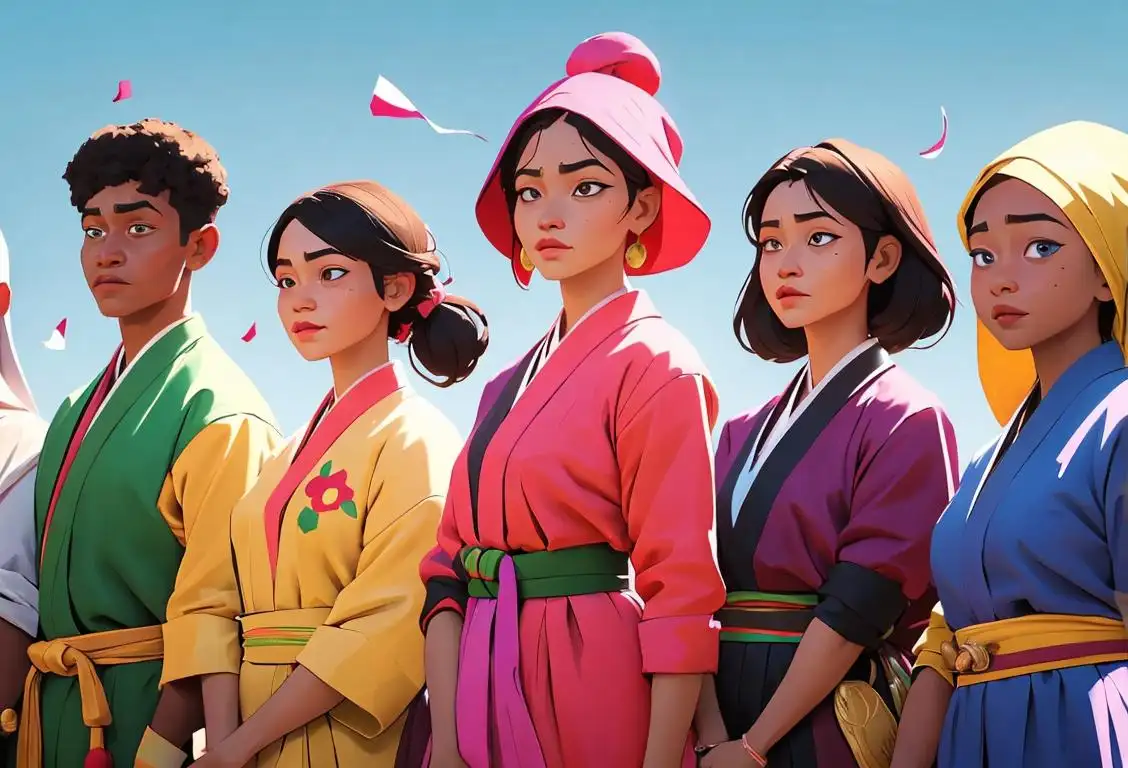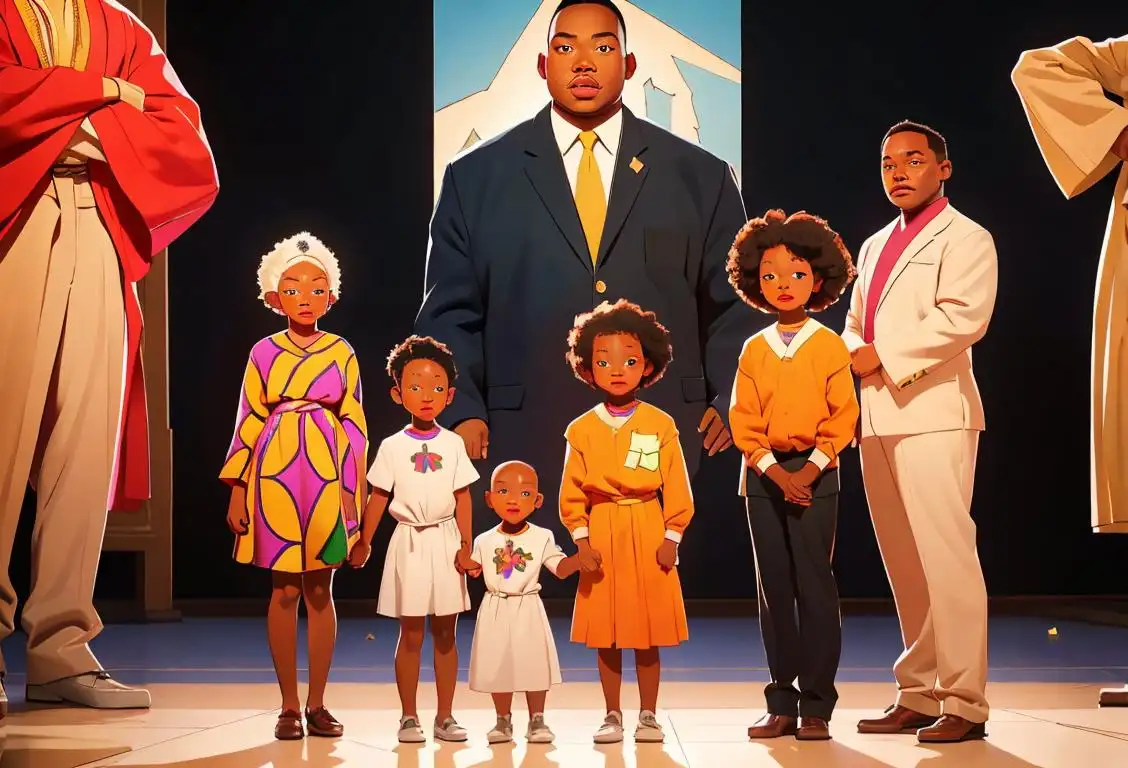National Indigenous Solidarity Day

Welcome to WhatNationalDayIsIt.com, where we uncover the fascinating history of national days! Today, we're diving into the world of National Indigenous Solidarity Day, a special day dedicated to honoring and celebrating Indigenous culture and resilience. So sit back, relax, and let's learn together!
When is Indigenous Solidarity Day?
It's national indigenous solidarity day on the 21st June.
Uncovering the History of National Indigenous Solidarity Day
Eager to learn about the origins of National Indigenous Solidarity Day? Well, you're in luck! This day first gained recognition in Canada back in 1995 when the Governor General of Canada, Roméo LeBlanc, proclaimed it as 'National Aboriginal Day.' It was created to provide an opportunity for all Canadians to come together and show their support for the diverse cultures, traditions, and histories of Indigenous peoples in Canada. However, in 2017, 'National Aboriginal Day' was officially renamed 'National Indigenous Peoples Day' to reflect the preferred terminology used by Indigenous communities across the country.
Since its inception, National Indigenous Solidarity Day has played a crucial role in promoting understanding, respect, and reconciliation between Indigenous and non-Indigenous communities. It serves as a reminder of the continuing struggles faced by Indigenous peoples and provides an occasion to celebrate their rich contributions to society.
How to Celebrate
Looking for ways to celebrate National Indigenous Solidarity Day? Here are a few ideas to get you started:
- Attend Cultural Events: Check out local powwows, music performances, art exhibitions, and storytelling sessions to immerse yourself in the vibrant Indigenous culture.
- Support Indigenous Businesses: Show your support by purchasing products from Indigenous artisans, entrepreneurs, and businesses in your community.
- Learn and Educate: Take the time to educate yourself about the history, traditions, and challenges faced by Indigenous peoples in your country. Share what you learn with others to promote awareness and understanding.
- Support Indigenous Causes: Consider donating to organizations that work towards promoting Indigenous rights, preserving languages, and improving educational opportunities for Indigenous youth.
Remember, it's not only about celebrating on one specific day but also about fostering ongoing solidarity and respect throughout the year.
History behind the term 'Indigenous Solidarity'
1970
Emergence of Indigenous Movements
During the 1970s, indigenous peoples around the world began to join together to advocate for their rights and self-determination. This marked the emergence of indigenous movements, which sought to address historical injustices and protect the cultural heritage of indigenous communities. Inspired by the civil rights movement and decolonization efforts, indigenous peoples started organizing and raising awareness about their unique challenges and struggles.
1974
First World Conference on Indigenous Peoples
In 1974, the first World Conference on Indigenous Peoples was held in Norway. This conference provided a platform for indigenous representatives from different parts of the world to come together and discuss common issues. The conference highlighted the need for international solidarity among indigenous peoples to address shared concerns such as land rights, cultural preservation, and political representation.
1994
International Year of the World's Indigenous Peoples
In 1994, the United Nations designated it as the International Year of the World's Indigenous Peoples, recognizing the importance of raising global awareness about indigenous cultures, traditions, and challenges. The year-long observance aimed to promote dialogue and cooperation between indigenous peoples, governments, and civil society organizations. It fostered indigenous solidarity by emphasizing the value of indigenous knowledge and the need to protect indigenous rights.
2007
Adoption of the United Nations Declaration on the Rights of Indigenous Peoples
In 2007, the United Nations General Assembly adopted the United Nations Declaration on the Rights of Indigenous Peoples (UNDRIP). This international human rights instrument sets minimum standards for the protection and promotion of indigenous rights. The declaration recognizes indigenous peoples' rights to self-determination, land, culture, and language. It also emphasizes the need for solidarity and cooperation between indigenous peoples and states to achieve social justice and equality.
2013
International Day of the World's Indigenous Peoples
To further promote indigenous solidarity and raise awareness about indigenous issues, the United Nations declared August 9th as the International Day of the World's Indigenous Peoples. Since 2013, this annual observance serves as a reminder of the importance of respecting indigenous cultures, supporting indigenous-led initiatives, and working towards justice and equality for all indigenous peoples worldwide.
Did you know?
Did you know that National Indigenous Solidarity Day is recognized not only in Canada but also in other parts of the world? Similar celebrations take place in countries such as New Zealand, Australia, and the United States!Tagged
awareness fun cultureFirst identified
21st June 2016Most mentioned on
21st June 2016Total mentions
8Other days
Minority Day
Hot Sauce Day
Eat What You Want Day
African American Museum On Mlk Day
Goth Day
Noodle Day
Handloom Day
Moving To Canada Day
History Day
Australia Day









